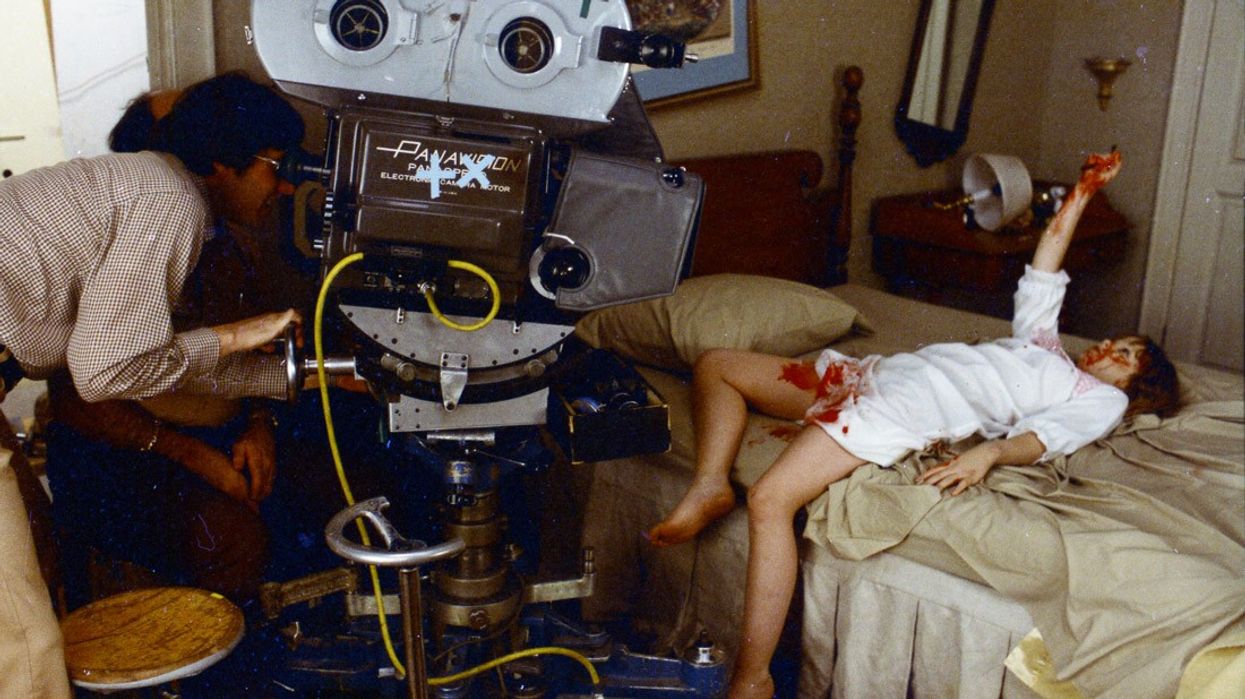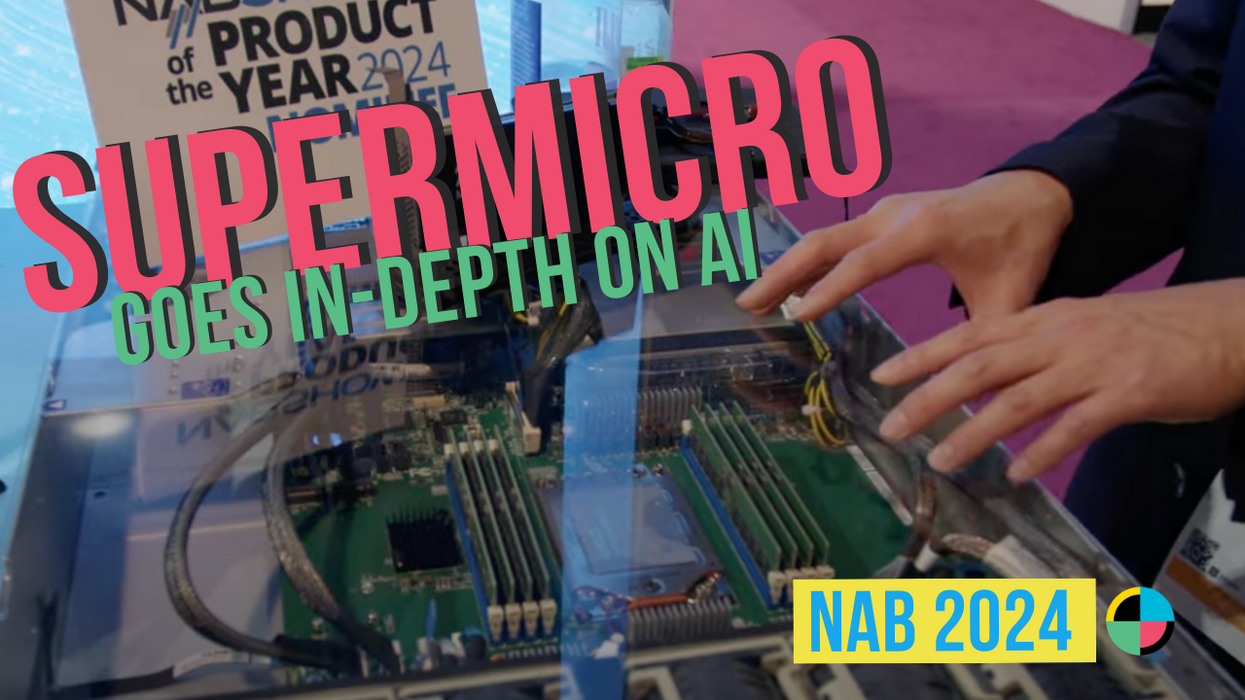William Friedkin Opens Up About the Shocking Legacy of 'The Exorcist' and Its Production
William Friedkin shocked audiences with his 1973 horror classic The Exorcist. Now, filmmaker Alexandre Philippe unpacks the director's definitive film in his "cinema essay" Leap of Faith.

It's rare to get the chance to really dive deeply into the story behind a movie. There are filmmaker interviews, but they are often short, and if they are done around the time a film comes out, they often avoid discussing the ending to avoid ruining the experience for audiences.
Leap of Faith, like other films by Alexandre Philippe, is something you don't get to see every day. It's a deep dive into the work of a filmmaker. This is a feature-length interview with director William Friedkin on a single subject, The Exorcist. The whole film works as a window into the interior of the creative process, including an exploration of the collaborative relationship a director has with actors. No Film School sat down with Philippe at Sundance before the film's premiere.
NFS: So obviously this is a really beautiful, very deep dive of a film. Can you tell me what first attracted you specifically to The Exorcist as a subject?
Alexandre Philippe: Well, it's actually a strange story because I was not at all planning on making a film about The Exorcist, but I met Bill Friedkin in Sitges at the festival a couple of years ago and he invited me to his table and then invited me for lunch three weeks later in Los Angeles. The conversation very quickly switched to The Exorcist and he sort of, I like to say, in a way, he baited me. I think he wanted me to make this film and I mean this in the best possible way when I say he baited me. He basically told me, "If you wanted to look at my archives, then you know, the things I have, let me know." And I said, "Well, what do you mean?"
He said, "Well, why don't you read my autobiography and if you find an angle, just let me know." And that was that, and so I proposed to him, to use the Hitchcock/Truffaut model of interviews. I wanted to make a very different film and I wanted to really focus on his process as a filmmaker. And I proposed that we just really sit down over a period of days and really crack it open and talk about his philosophy and his techniques...his approach to filmmaking and his thoughts on arts. The result is Leap of Faith.
NFS: This film is like a window into the mind of a filmmaker in a way that you rarely get. How many days did you actually shoot with him?
Philippe: We did a total of six days of interviews. There were multiple lunches and phone calls and conversations in between. And, I mean, he is just incredible. He is so generous, and it was clear very quickly that it meant something. We hit it off and had this relationship. I think he opened up a lot more than we've ever seen him. The final scene is pretty amazing stuff. The whole Kyoto sequence and that monologue when you deliver it. I knew instantly it had to be the final scene of the film.

NFS: So when it's happening, you’re aware of the edit. Do you edit this yourself or do you work with an editor?
Philippe: I do, but I script it first. For me, it has to work on the page before it works [on the screen]. I gave David Lawrence the script and first he followed the script... then... we started really going back and forth and figuring out what works and what doesn't work. We made some structural changes along the way. But David had brought a whole lot to the picture. I mean, he was extraordinary.
NFS: What was most surprising to you that you learned from Friedkin in the interview process?
Philippe: I think we all have this image of William Friedkin—I mean, he is almost this mythical filmmaker at this point. Right? He's a mythical figure. We think of him as this Maverick filmmaker who was shooting guns on set and slapping his actors across the face and doing a lot of crazy stuff—which he was—but I don't think that many of us really think there's this man who will go to the Kyoto Zen gardens and just start crying. Just looking at this garden of nothing but combed sand and stone, or going to the Chicago Art Institute every year or two to look at the same paintings over and over—who's all about grace notes and moments of simplicity. To me, that was most surprising and I think that I wanted to make not just a portrait of him, but also a deep dive into The Exorcist that was not going to be about what we think of when we think of The Exorcist, which is the special effects, the horror, and all this stuff.
I really wanted to focus on the more subtle aspects of it and of his filmography, because I think at the end of the day, he is a very, very thoughtful, very subtle filmmaker and I think that's what makes not just The Exorcist so great but his films in general so great.

NFS: I was surprised that he's much more open to improvisation than I thought he was going to be. For instance, that wonderful grace note of Max Von Sydow outside walking through the market with that shaft of light and you're like, this is just something he saw that struck him and they grabbed a shot of pure beauty, no story. It leaves this nice moment in the film that just came to him on set, which isn't something you don't think of Friedkin as being one of those loose improvisers. You think of Friedkin as being a little bit more controlled than that.
But the world has changed. He does talk a little bit about the changing nature of a director's relationships with actors. He does acknowledge that a lot of the things he did then, people can't do now. Did you get a sense that he has reckoned with that period?
Philippe: I think there's acknowledgment, not just that it was something you could get away with then, but not now. I think there's also a recognition that he is really now a filmmaker who was in his prime then and was able to do those things, but that was part of his art. Even though he wouldn't do it today, I think that it is very much part of how he operated, for better or worse. How would William Friedkin direct a film today? Well, it's hard to say, I mean obviously, his last few films have been incredible.
I mean, look at Killer Joe and Bug. I mean, holy cow, those are incredible films. But some time has passed since then, and I think at that time he was still able to use those Maverick, kind of questionable techniques with actors. What's important is that he recognizes the fact that he couldn't get away with it now. Maybe that's why we may never see another William Friedkin movie again.
For more, see our ongoing list of coverage of the 2020 Sundance Film Festival.
No Film School's podcast and editorial coverage of the 2020 Sundance Film Festival is sponsored by SmallHD : real-time confidence for creatives and by RØDE Microphones – The Choice of Today’s Creative Generation














